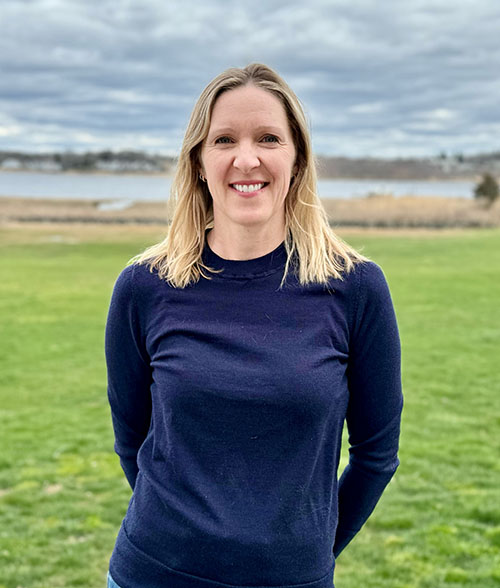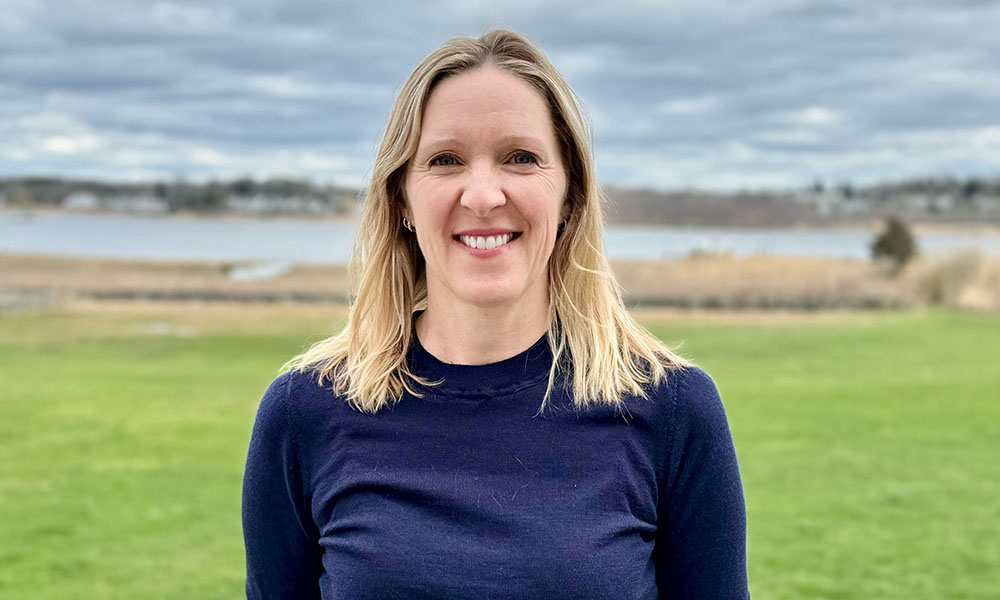Talking to Kids About a Parent’s Cancer Diagnosis
Talking to children about cancer is never easy, whether they’re kids, teens, or even young adults. Mass General psychologist Cindy Moore, PhD shares her advice for starting the conversation.
Weather AlertMass General Brigham's hospital campuses and off-site facilities are fully open and operational on Tuesday, Feb. 24, with the exception of some limited closures. For real-time updates and service changes, please check our Alerts page.View Alerts page
Patient StoryMar | 13 | 2024
In 2014, Ann Malik couldn't imagine having lung cancer. She was young, active, healthy, and didn't smoke. And so, as the married mother of three, tells WCVB-TV's "Chronicle,” her lung cancer diagnosis came as a shock. But when she came to the Mass General Brigham Cancer Institute, she found hope in the form of live-saving innovation through the latest targeted cancer treatments.

"We are so grateful for our wonderful team at Mass General and all the support from family and friends," Malik says. "We are also grateful that we have the opportunity to effectively treat this disease and live a relatively normal life."
Early in 2014, at age 39, Malik began to experience fogginess in the brain and fatigue. Given her children were three, five, and seven years old at the time, the busy mom figured her symptoms were nothing out of the ordinary.
Over the next several months, her health took a downturn. After she began coughing up blood, a CT scan showed she had pneumonia. Two bouts with pneumonia and troubling weight loss followed.
A week after Malik was diagnosed with an apparent lung ulcer, her pulmonologist called with devastating news: she had lung cancer. Within days, she learned the cancer was stage four and had already spread from her lungs to her brain, liver, spine, hip, and lymph nodes.
"I was not prepared to find out…she had a month to live," her husband, Vinu, says. "There were three doctors in the room. One was a woman, and she was crying. So then I said, 'Well, you don't know her. She's strong.'"
Malik immediately began chemotherapy and was tested for genetic mutations. One month later, she celebrated her 40th birthday. Then she received a second opinion that would save her life.
Malik was found to have ROS1-positive cancer. According to the Lung Cancer Foundation of America, "ROS1-positive lung cancer occurs when a gene called ROS1 fuses with a nearby gene. This fusion causes the ROS1 gene to remain stuck in the 'on' position," which drives cancer growth.
Therefore Mass General Brigham Cancer Institute was able to provide Ann with a targeted cancer therapy, a cancer treatment that targets proteins that control how cancer cells grow, divide, and spread. The drug, oncologist Zosia Piotrowska, MD, MHS, tells "Chronicle," "was approved by the FDA but not for ROS1-positive cancers like hers. It was actually approved for a different type of lung cancer, [but] we were able to get it for her."
The results were stunning. Nine months after Malik's diagnosis, she had no signs of cancer. "As if the cancer had melted away," she says.
When Malik first met her doctors at Mass General Brigham, they said ROS1-positive cancer never really goes away. But they were hopeful that effective treatments available then and, in the future, would make it a manageable condition.
That expectation has proved to be true. For many years after her diagnosis, cancer returned to Malik's brain every six months or so. Each time, doctors successfully treated it with radiation therapy.
Fortunately, Malik has been clear of cancer since 2021. Today she is enjoying good health along with the company of Vinu and their now teenage children. She is also supporting other cancer survivors by teaching meditation, guiding them to find inner peace and resilience as she has.
"I would listen to other people's stories so I could form a belief that it was possible," she tells "Chronicle." "It's such a gift for me that I can be here and share my story so somebody out there knows that they can survive and they can thrive."
Ann MalikWe are so grateful for our wonderful team at Mass General and all the support from family and friends. We are also grateful that we have the opportunity to effectively treat this disease and live a relatively normal life.
View inspiring cancer survivor stories from Mass General Brigham Cancer Institute’s community of patients, families, and staff.
Talking to children about cancer is never easy, whether they’re kids, teens, or even young adults. Mass General psychologist Cindy Moore, PhD shares her advice for starting the conversation.
As a non-smoker with a family history of breast and ovarian cancer, stage 1 lung cancer was never on Kelley's radar. Following her diagnosis, she realized that helping others gave her purpose, and she became involved in advocacy groups with the goal of increasing awareness and access to screening.
An integral part of one of the world’s most distinguished academic medical centers, the Cancer Institute is among the leading cancer care providers in the United States.
